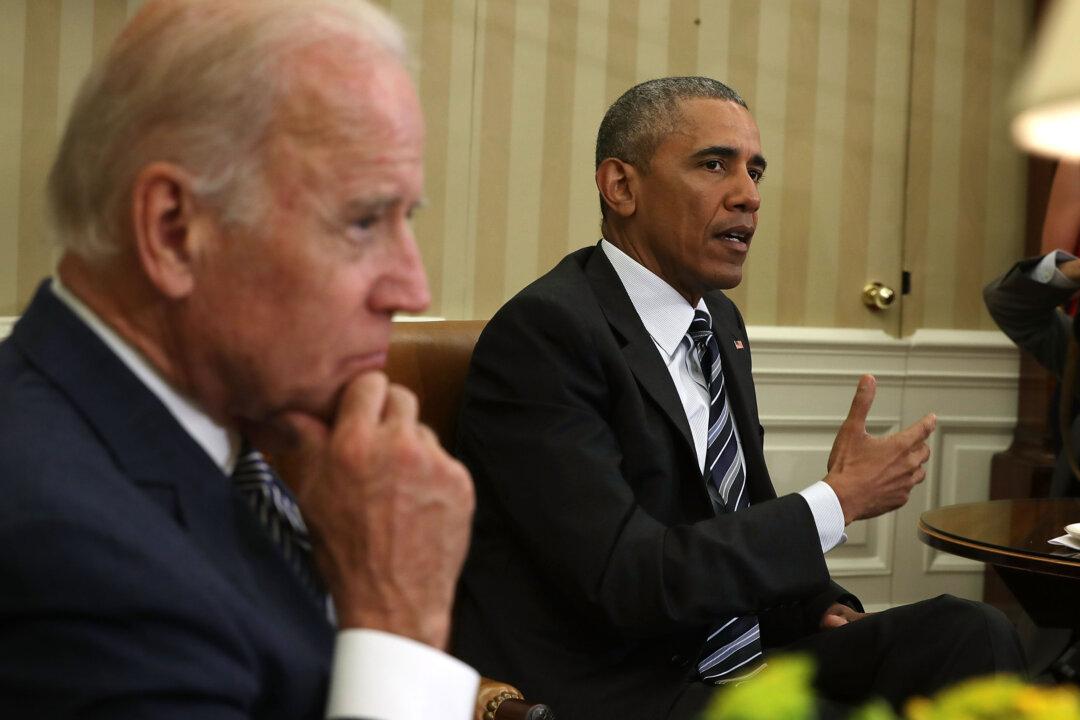Outgoing President Barack Obama revealed in early 2017 that he knew details from phone calls incoming Trump administration National Security Adviser Michael Flynn made, surprising one of the Department of Justice’s top officials, according to newly released documents.
The department on Thursday moved to dismiss the criminal case against Flynn that rested on the phone calls.





